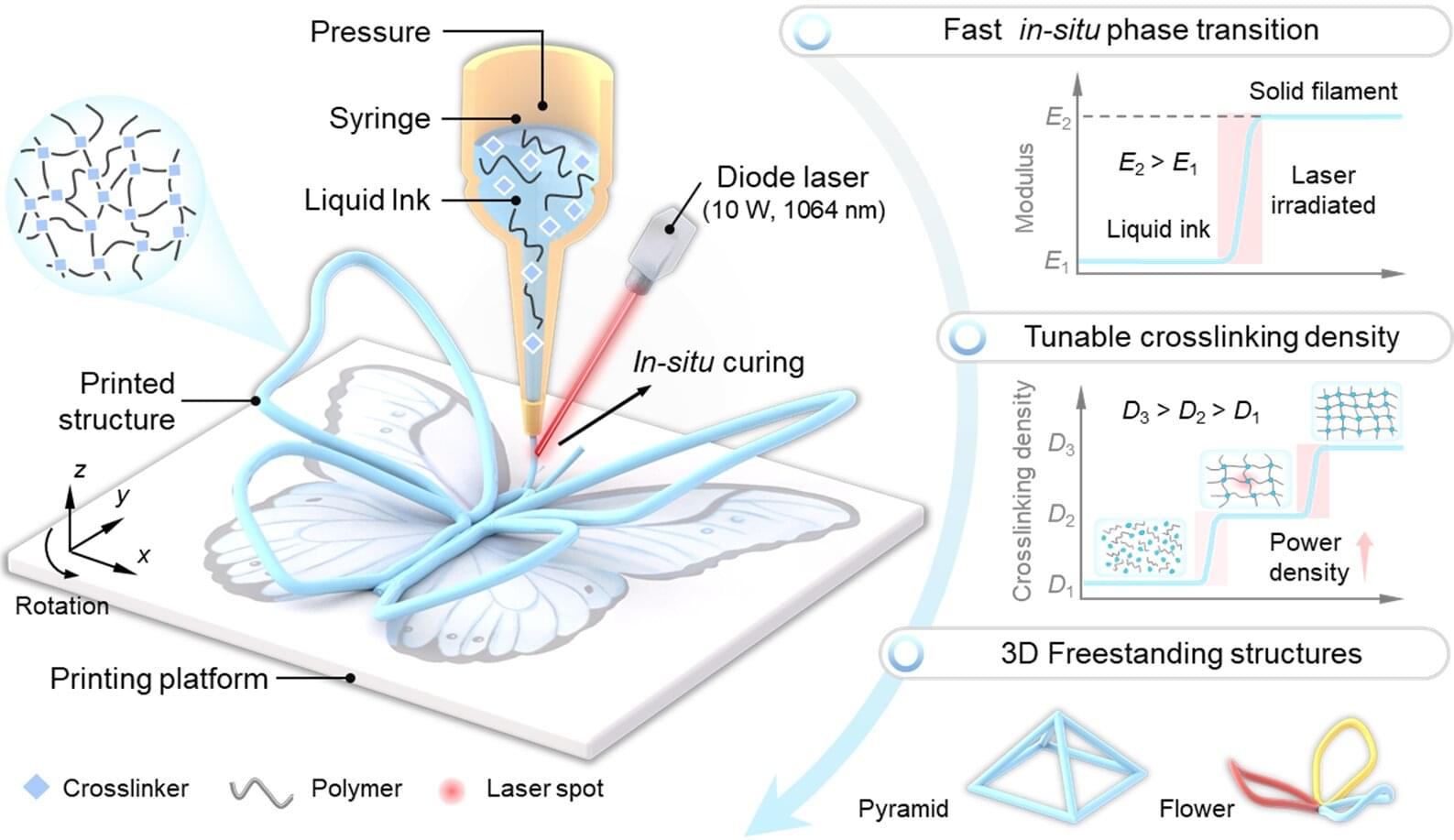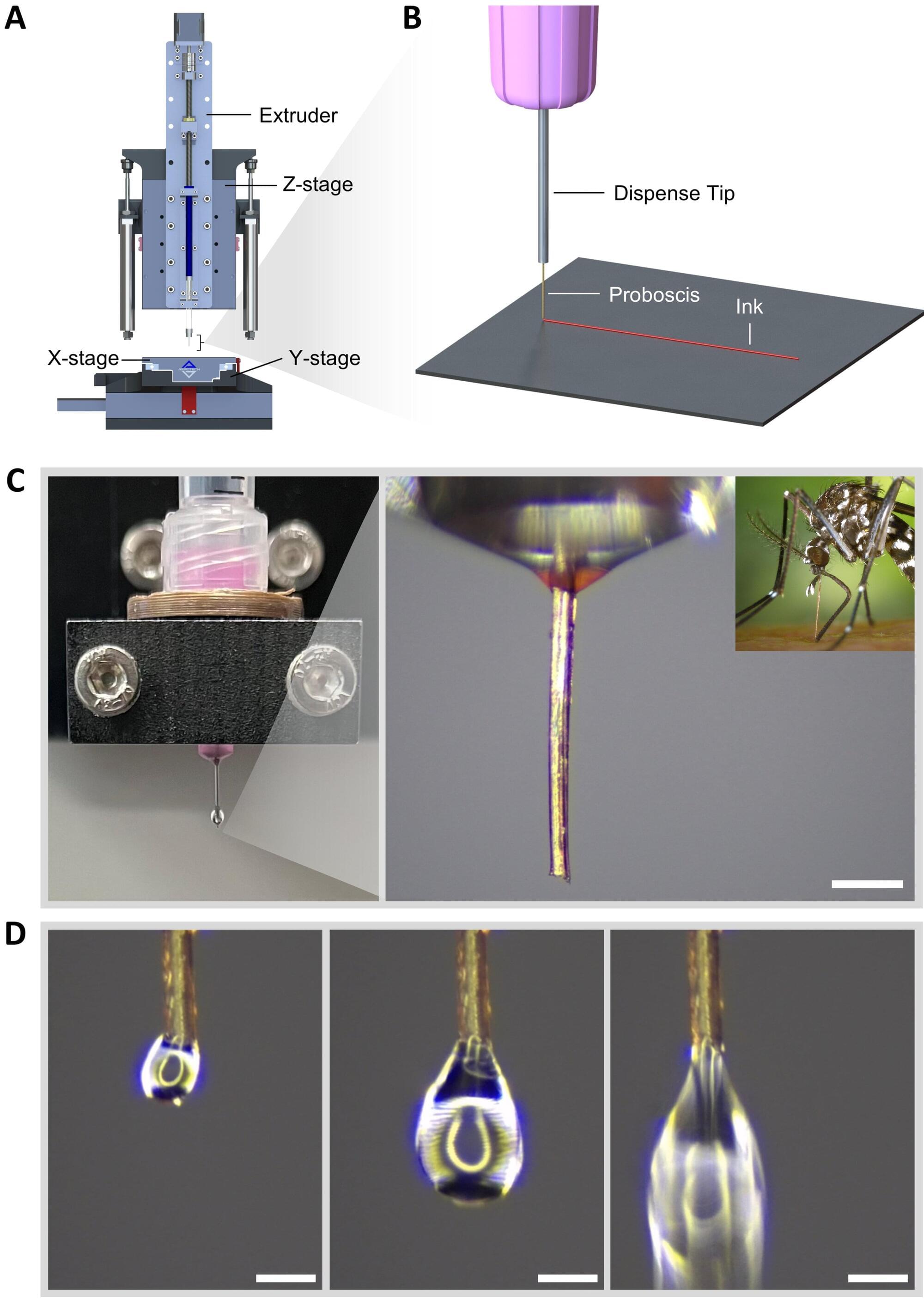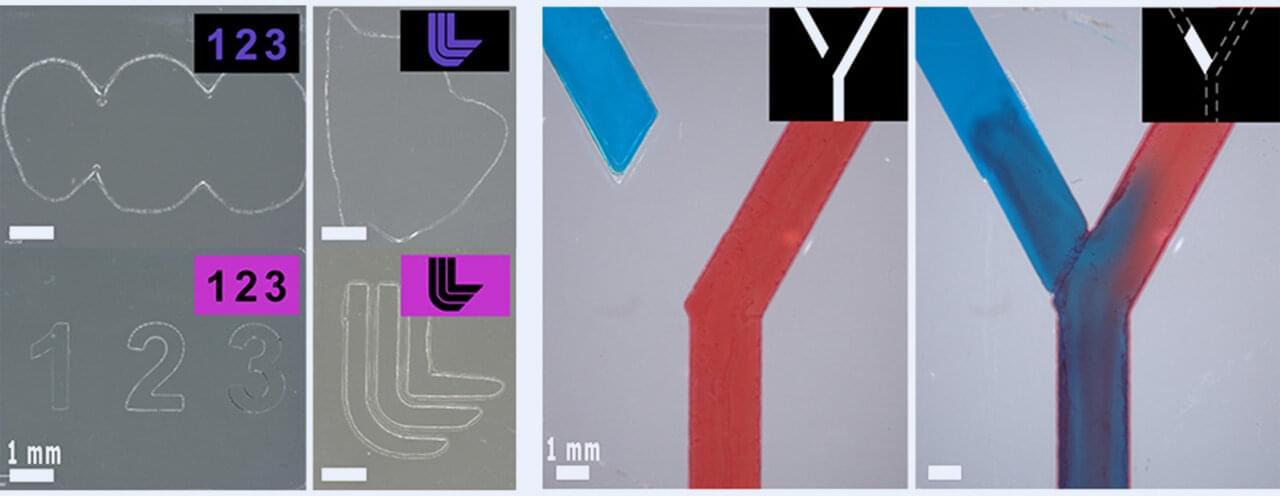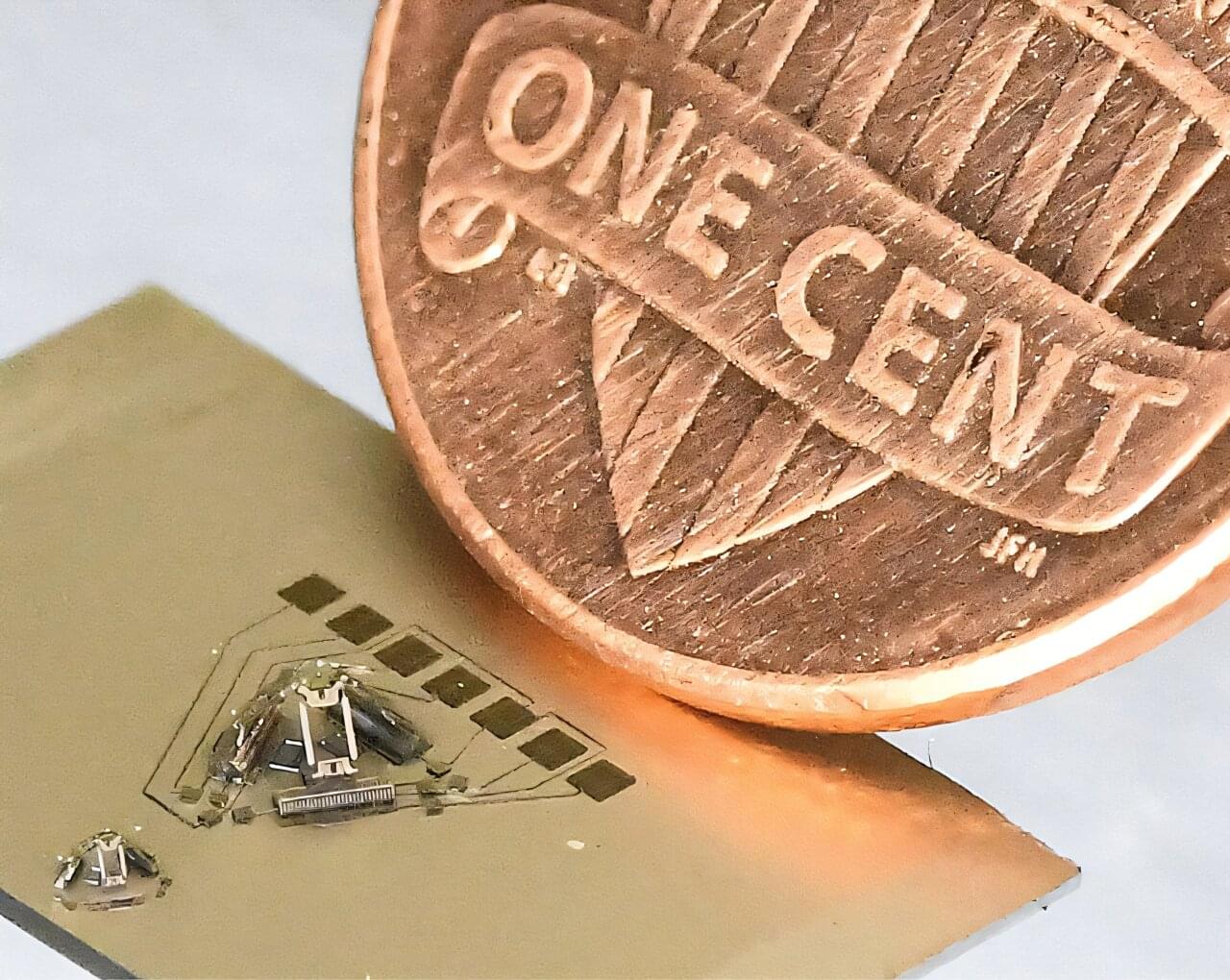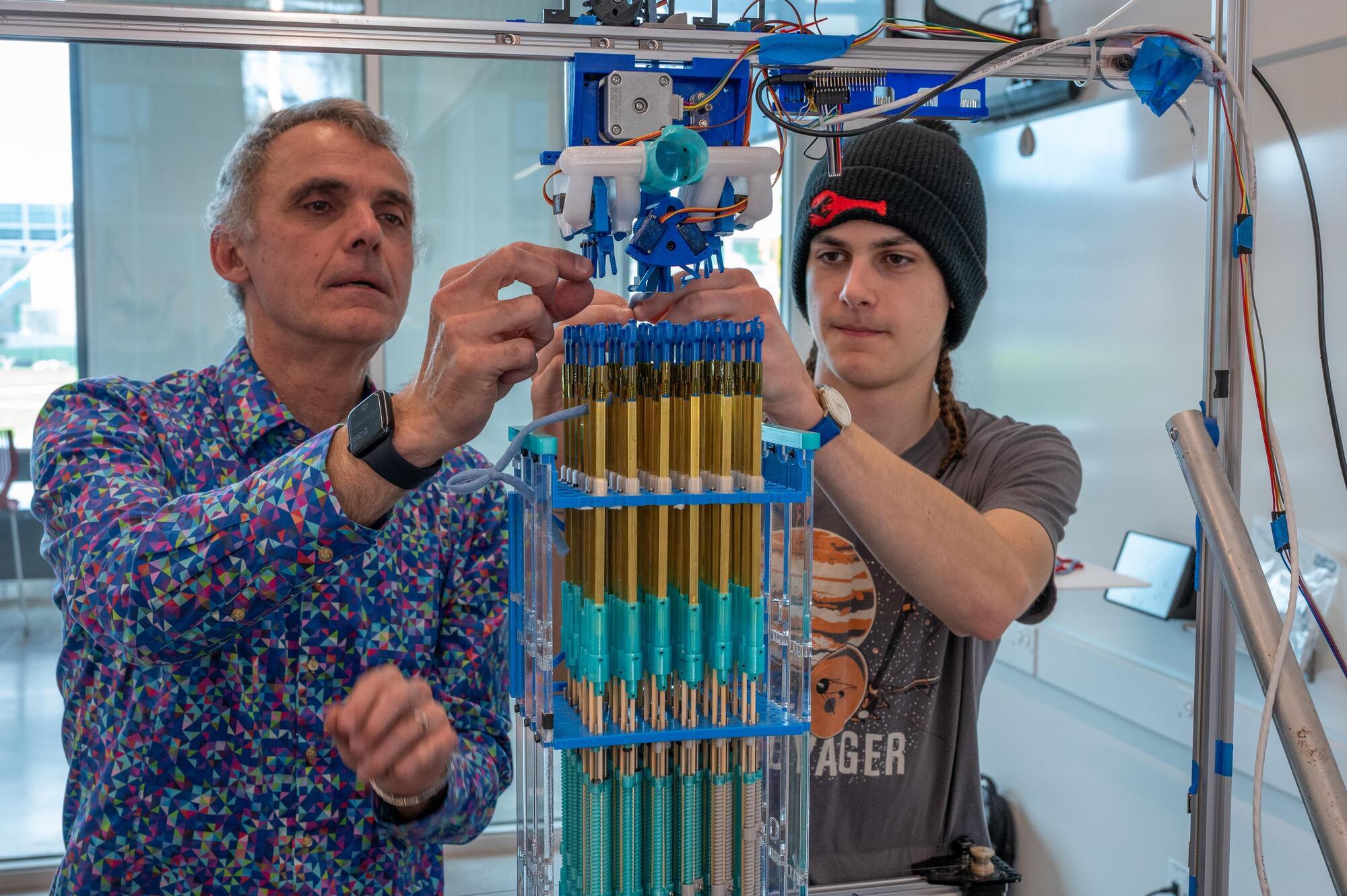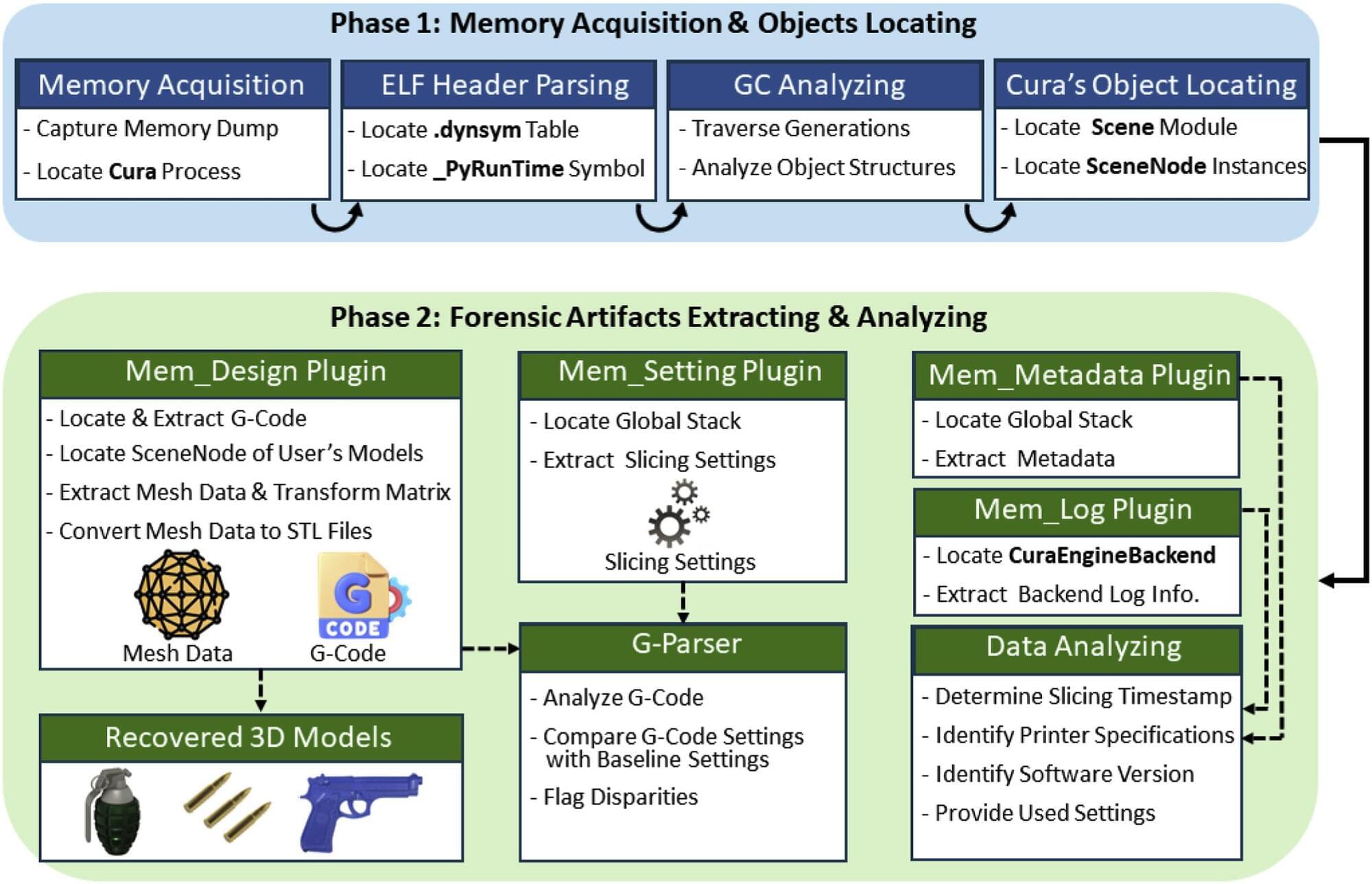Thermosets, such as epoxy and silicon rubbers, are a class of polymer (i.e., plastic) materials that harden permanently when they undergo a specific chemical reaction, known as “crosslinking.” These materials are highly durable, heat-resistant with excellent electrical insulation in various applications such as in adhesives, coatings, and automotive parts.
Thermosets are also widely used to fabricate electronic components, including switches, circuit breakers and other core circuit components.
So far, thermoset-based free-standing devices have proved difficult to construct by using conventional 3D printing processes. One key reason for this is that the materials need to be provisionally supported by other supporting objects until they become solid, which adds more steps to the printing process.
